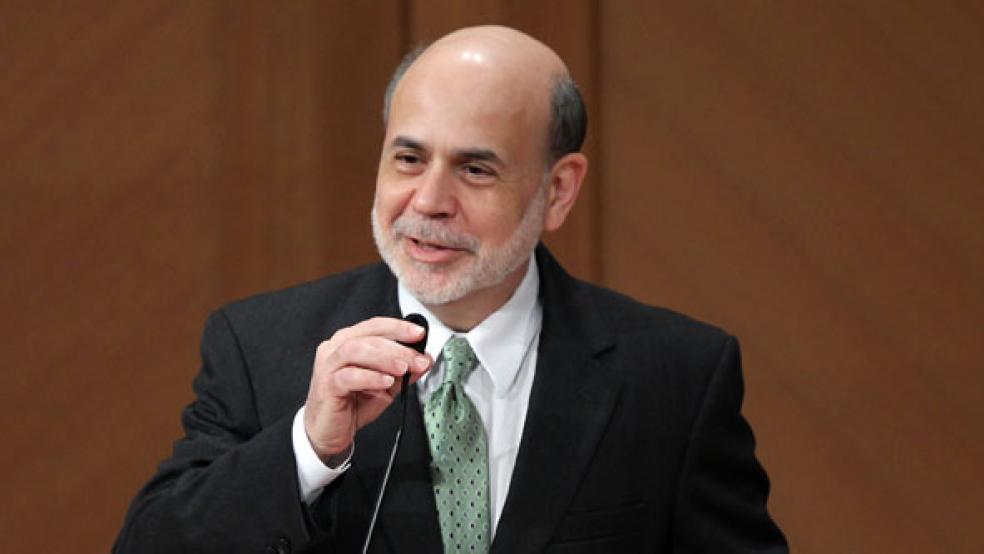Former Fed Chairman Ben Bernanke’s move this week to the Brookings Institution was a major public relations coup for the venerable think tank and overnight transformed it to the premier center for the study of monetary policy.
Bernanke wasted no time making a bee line for Brookings after eight crisis ridden years at the central bank’s helm. He reported for work on Monday morning, where he intends to serve as a distinguished fellow in residence and write a book on his years riding out the worst financial crisis of modern times.
Related: Judging Bernanke: What the Fed Chair Got Right and Wrong
“Brookings scholars have a well-established reputation for contributing innovative ideas and trenchant analysis to economic and other public policy debates,” Bernanke said in a statement. “I welcome the opportunity to engage in that vibrant community through research and writing.”
Bernanke will be affiliated with the newly established Hutchins Center on Fiscal and Monetary Policy, which Brookings launched in January 16 after receiving a $10 million grant from the Hutchins Family Foundation.
David Wessel, a former economics editor of the Wall Street Journal and the author of In FED We Trust: Ben Bernanke's War on the Great Panic a book about Bernanke’s handling of the fiscal crisis, helped land Bernanke at the think tank.
Related: Ben Bernanke’s 6 Secret’s for a Happy Life
“Basically, he was looking to stay in Washington in a place where he could comfortably write a book and have a sounding board for doing that, and he found Brookings a good place for that – and we agreed,” Wessel said in an interview on Tuesday.
While the Hutchins Center is still very much a work in progress, its mission is to improve public understanding of fiscal and monetary policy and the quality and effectiveness of those policies. Last month, the center held its first event – a seminar on lessons learned from the 2007 financial crisis with regards to monetary and financial regulations. Later this year, the center will hold an event on fiscal policy and launch some research projects.
The key, Wessel said, is providing some needed perspective on fiscal policy “without being partisan, which I think is part of the problem with what’s going on at some of the places outside of Brookings.”
Related: Ben Bernanke’s 8-Year Fed Odyssey
Wessel didn’t name names, but the Heritage Foundation has taken on a decidedly Republican sheen since former conservative Sen. Jim DeMint (R-S.C.), a Tea Party favorite, took over as president in January 2013.
Wessel said that while Brookings is brimming with economists specializing in fiscal policy, there aren’t that many specialists there or elsewhere on monetary policy – which focuses on how the Fed raises and lowers interest rates by manipulating the money supply with the goal of holding down inflation and preventing recession.
“So there I think there is a bigger need than ever given the extraordinary things the Fed has done and the ground it’s plowed over the last five years,” said Wessel.
“On fiscal policy, part of my job is to figure out how can we take all these [economists scattered throughout the building] and leverage those resources and try to find a way to exploit them for the benefit of the public so you don’t end up with one person writing a blog post on defense and someone else on health care spending, and you would never know that actually we’re part of the same budget,” he added.
“There’s practically a mini- Office of Management and Budget here at Brookings,” he said.
Top Reads from The Fiscal Times:





